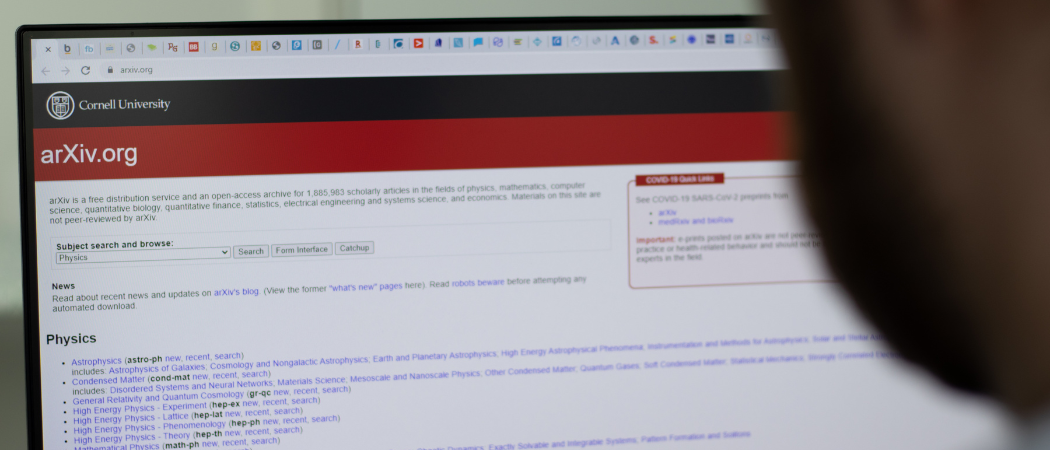Preprint data suggests that boycotts over the country’s war on Gaza are beginning to take effect

Photo credits: Postmodern Studio / BigStock
Significantly fewer academics, particularly in Europe, are authoring preprints with researchers in Israel this year, a sign that academic boycotts could be starting to scientifically isolate the country.
Israel is facing a growing wave of academic boycotts over its war on and food blockade of Gaza. This latest data, analysed by Science|Business, appears to be the first evidence that the campaign is hurting its joint publications with the rest of the world, in particular with countries such as Spain and South Africa, where criticism of the Gaza war has been strongest.
“We see a dramatic increase in the number and severity of boycott cases” this year, said Emmanuel Nahshon, who is in charge of combatting boycotts at Israel’s Association of University Heads.
Preprints are a leading indicator of scientific trends, because they are posted immediately online by researchers, rather than having to wait months or years for publication in a journal.
Data from the Scopus database shows a sharp fall this year in the proportion of Israeli preprints that have overseas co-authors.
For example, last year, 9.2% of Israeli preprints had a co-author based in Spain. But this year, that figure has dropped to 5.9%. Spain’s government has been one of the most critical of Israel’s Gaza war, and its universities took a lead in 2024 in reviewing their ties.
Last year, 3.4% of Israel’s preprints were co-authored with South Africa. Now, the proportion is just 1%. South Africa was one of the earliest critics of the Gaza campaign, launching a genocide case against Israel in the International Court of Justice in December 2023.
But even in less outspoken countries, collaboration with Israel has seriously dipped this year. The proportion of Israeli preprints with co-authors based in the Netherlands, Canada and Japan has fallen by a third or more.
There have also been significant dips in collaboration with the UK, France, Italy and Switzerland.
Even with Germany, where university heads have strongly opposed a boycott, collaboration has fallen off. Last year, 16% of Israeli preprints had a German collaborator. But so far this year, that proportion is down to 12.7%.
The US remains by far Israel’s biggest collaborator, and that research partnership seems to have only slightly weakened this year.
Many US states have passed laws to prevent boycotts while, in May this year, the US National Science Foundation made receiving grants conditional on not boycotting Israel.
Harvard University has also recently expanded its links with Israeli universities as it negotiates with the US government, which has threatened to withhold billions of dollars in funding over claims of antisemitism.
Not just boycotts
There are some caveats to the data. First of all, preprints make up only a small fraction of research output. The Scopus data is dominated by arXiv, which focuses on areas such as physics, mathematics and computer science.
What’s more, other countries, such as Germany and the UK, have also seen small dips this year in international collaboration on preprints with some countries. However, these falls are far less significant than those for Israel.
There’s no evidence yet of the drop in Israeli collaboration in data on published journal articles or conference papers, but this might take longer to filter through.
A further caveat is that growing Israeli isolation might not just be down to boycotts. Following the Hamas attacks of October 2023, flights were disrupted, travel warnings issued, and Israeli researchers drafted into the army, making international collaboration more difficult.
However, in cases such as South Africa and Spain, the falls in collaboration map onto political stances towards Israel, suggesting the boycotts play some role.
Over 1,000 incidents
Within Israel, universities are finding that boycotts are on the rise. A year ago, the country’s universities had tracked around 200-300 incidents, ranging from article rejections to full institutional boycotts, Nahshon told Science|Business. But now, there are over 1,000, he said.
Globally, Europe appears to be leading the boycott movement. According to a report in February by Israel’s Association of University Heads, around 60% of boycotts reported between 23 October and 24 December 2024 were from Europe. Most of the rest came from North America.
At least 60 universities globally have either suspended ties with Israeli universities or divested from certain Israeli companies implicated in the Gaza war, said a spokeswoman for the Palestinian Campaign for the Academic and Cultural Boycott of Israel.
Israel’s participation in the EU’s Horizon Europe research programme hit a record low this year, according to data in May.
Asia too?
Worryingly for Israel, the preprint data shows a drop in collaboration with China and Japan, as well as Europe.
The China dip isn’t as big as with some European countries, and could end up being a one-off, of course.
However, it might suggest that Israel can’t rely on increasing links with China to partially offset falling collaboration with Europe, as Russia has done following its full-scale invasion of Ukraine in 2022.
Related articles
- Amid Gaza war, debate intensifies: is it wrong to collaborate with Israeli universities?
- Belgian universities renew call to suspend Israel from Horizon Europe
Although academic boycotts of Israel remain a largely European and North American discussion, there are some signs that the Gaza war has angered Chinese academics too.
Earlier this month, Yan Xuetong, a prominent international relations researcher at Tsinghua University, confronted an Israel Defence Forces attaché at a forum in Beijing, accusing the country of killing more than 70,000 civilians, according to a viral clip.
China’s government, meanwhile, has criticised Israel’s bombing campaign in Gaza and the blocking of humanitarian aid. There’s some evidence that Chinese social media users tend to sympathise with Palestinians over Israelis.
And last year, the University of International Business and Economics, the only Chinese branch campus in Israel, shut down. While it’s not clear why, it came in the context of deteriorating relations between the two states.





 A unique international forum for public research organisations and companies to connect their external engagement with strategic interests around their R&D system.
A unique international forum for public research organisations and companies to connect their external engagement with strategic interests around their R&D system.